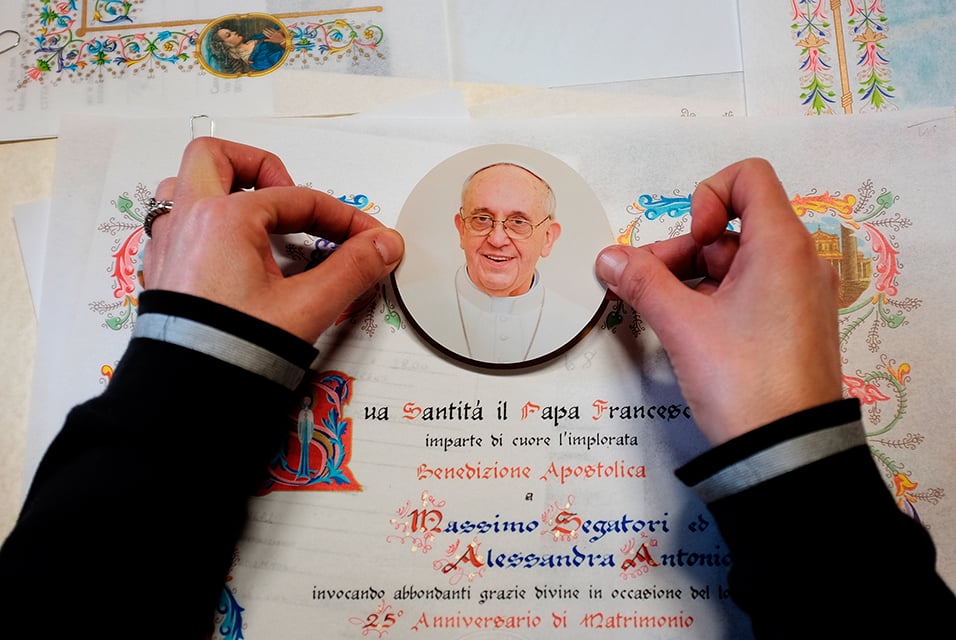People
Vatican Cracks Down on Fake Parchment Peddlers
The papal blessing industry will be shut down come the new year.

The papal blessing industry will be shut down come the new year.

Sarah Cascone

Come the new year, hundreds of Rome’s artisan calligraphers will be out of a job, thanks to Pope Francis, the AFP reports. The Pontiff, concerned that unwitting tourists are being conned into buying forged papal parchments, had opted to bring production of the scrolls in-house.
The Vatican’s Office of Papal Charities will now produce the popular apostolic benedictions, which Catholics around the world purchase on the occasion of marriages, baptisms, and anniversaries, by computer, rather than by hand. In addition to being more cost effective, the Vatican argues, the new system will raise more money for charity—at the obvious cost of eliminating the profits once pocketed by the artists and the souvenir shops hawking their wares.
The artists and calligraphers currently producing their own scrolls pay the Vatican €3 ($3.70) per parchment to obtain the official Vatican stamp and signature. Other than that fee, which goes to charity, the rest of the the profits went to the artists and the shopkeepers. Most cost between €7–25 ($8.60–30), although more elaborate parchments can cost upwards of €50 ($61). Sometimes, unfortunately, that has included forged documents offering inappropriate blessings that have embarrassed the papacy.
Some of the studios that will close on December 31 are family operations, like the one that 92-year-old Rino Pensa opened 65 years ago. He’s still active in the business, which is now run by his son, Paolo. “I’ll be out of a job, as will the seven people who work with me,” lamented the younger Pensa in an interview with AFP. Although the father-son duo tried reaching out to the Vatican, “there was nothing we could do. They’ve already made up their minds.”
That the change will go into effect at the holidays does make the normally-popular Pope Francis seem downright Grinch-like. Though the papal blessing industry is only about a century old, religious documents with a much longer history, that come from the monastery of the Pope’s name saint, are currently on view for Christmas this year in New York (see “St. Francis Manuscripts Come to New York“).